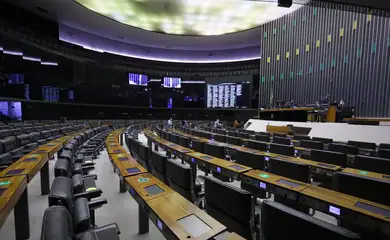Chamber concludes voting and PEC of precatório goes to enactment

The plenary of the Chamber of Deputies concluded, this Thursday (15), the vote in the second round of the Proposal for Amendment to the Constitution (PEC) 46/21. The text provides for an annual limit for the payment of court orders, the debts of the Union, states, municipalities and the Federal District, determined by a final court ruling. Precatório can be related to taxes, salary issues and others. The matter goes to enactment.

The proposal opens a final space of R$ 43.8 billion for the Union to spend in 2022, as disclosed by the Ministry of Economy. Next year, the application of resources saved with the limit on payment of court orders should be used exclusively in social security and in the Auxílio Brasil program.
When analyzed in the Senate, in early December, lawmakers modified the text, which had to be returned for analysis by deputies. Among them is the reduction from 2036 to 2026 of the term of validity for this limit on payment of court orders. Another point was the inclusion of linking the use of resources obtained with income transfer, health, social security and social assistance programs.
In this session, the deputies analyzed passages that had not yet been promulgated. Last week, Congress had already enacted the other provisions of the PEC approved in the two Houses after an agreement between the House and Senate presidents for the slicing of the proposal that accelerated the vote on the measure.
Fundef
The deputies approved a highlight of the DEM that cancels the schedule made by the senators for the payment of court orders from the former Fundef, which was replaced by the Fund for the Maintenance and Development of Basic Education and the Valorization of Education Professionals (Fundeb).
According to the PEC, the payment of this type of precatório will always occur in three annual installments from its issuance: 40% in the first year, 30% in the second year and 30% in the third year.
Text translated using artificial intelligence.



